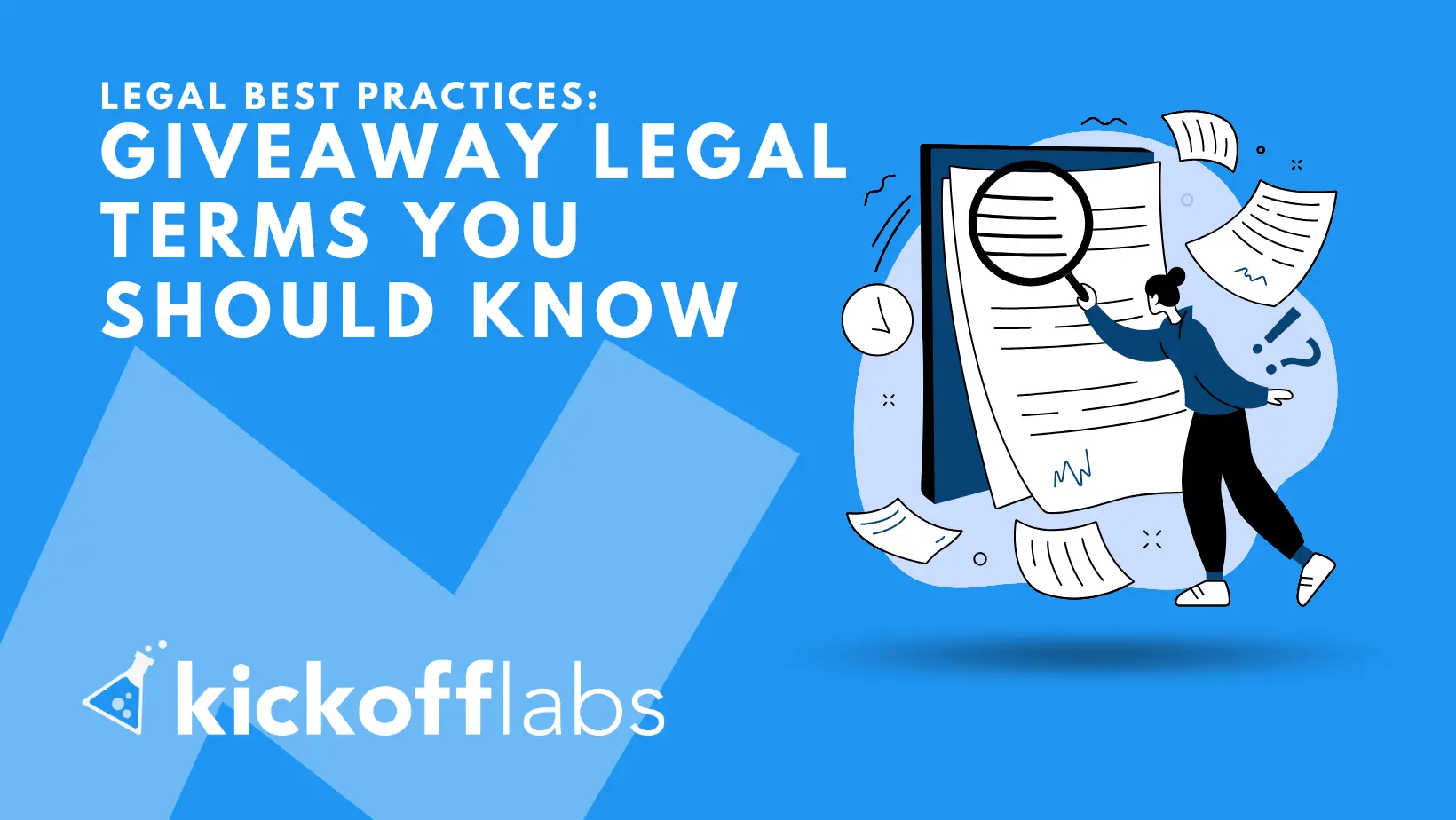Navigating the complex world of legal terminology is crucial for ensuring compliance and making informed decisions. This guide is designed to empower businesses and individuals by simplifying legal jargon, covering essential terms like “Sponsor,” “Purchase Requirements,” and “Prize Descriptions,” ensuring your next giveaway is a success.

Common Terms:
- Sponsor A sponsor is someone who is financially or physically supporting the giveaway. Some giveaways have no sponsor other than the business itself, while others are sponsored by a brand or person looking to gain recognition. They may offer products to be given away or financially support the business offering their own products. If you have a sponsor for your giveaway, you will want to be clear in your giveaway description about who they are.
- Purchase Requirements If your giveaway requires a purchase for entry, you will need to share the purchase requirements upfront. These are the specific purchase rules that your giveaway has and that people will need to complete in order to be considered for winning. Make sure your purchase requirements are clear and obvious to prevent any confusion.
- Prize Descriptions Prize descriptions are the information about the reward. They must be clear and complete, giving participants all of the information they need. This includes details such as whether there is free shipping if travel is included in the prize, how reward money will be issued, etc. The information you provide will depend on the specific prize. Just be clear and ensure that no stone is left unturned when you describe the giveaway prize.
- Tax Awareness Any promotion that has a prize valued at $600 means there are tax implications, and the winner needs to be aware of this. A prize of $600 or more will need to be reported to the Internal Revenue Service, and it will be up to your campaign to have the winner complete a prize validation saying they know and understand they will need to be responsible for taxes that come with the prize.
- Winner Make sure the official rules and general information clearly state what it takes to win and how the winner will be selected. Using a third party to select random winners in sweepstakes is wise to avoid being accused of bias or impropriety. If judges are used to judge a contest, describe the type of judges that will be making the selection and the criteria that will be used. It should also state how many winners will be selected and what the odds are of being selected as a winner.
Our random winner picker provides auditable, fair selection that you can document for legal compliance.
- Entry Make sure the official rules and general information for your giveaway clearly state who is eligible to enter the giveaway and how to enter. If there is a limit on the number of entries, make sure that is understood.
- Alternate Method of Entry(AMOE) Always check to see if your Country/local government requires an alternate method of entry (AMOE). This just means there should be alternative ways to enter the giveaway to allow everyone the same opportunity. Some of the different ways to enter are by mail, phone call and text, social media, online entry forms, and in person.
Run Legal Giveaways with Confidence
Choose compliant campaign types:
- Bonus Entry Giveaway - Legal sweepstakes structure
- Leaderboard Giveaway - Transparent rankings
- Reward Programs - Compliant incentive structures
Built-in compliance features:
- Fraud Detection - Protect contest integrity
- Fair Winner Selection - Random, auditable draws
- Official Rules Templates - Built into every campaign
Wrapping Up
In conclusion, this guide simplifies key legal terms, helping you confidently manage giveaways and promotions legally and effectively. This guide is meant as a general overview. We always reccomend consulting with a legal expert to create terms specific to your brand and giveaway.
Read more Legal Giveaway Best Practices with the next chapter:
5. Social Media Rules for Giveaways
Learn the ins and outs of running a legal giveaway on each social media platform.

